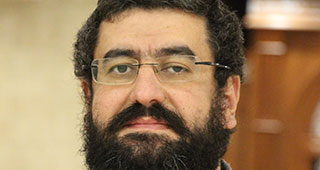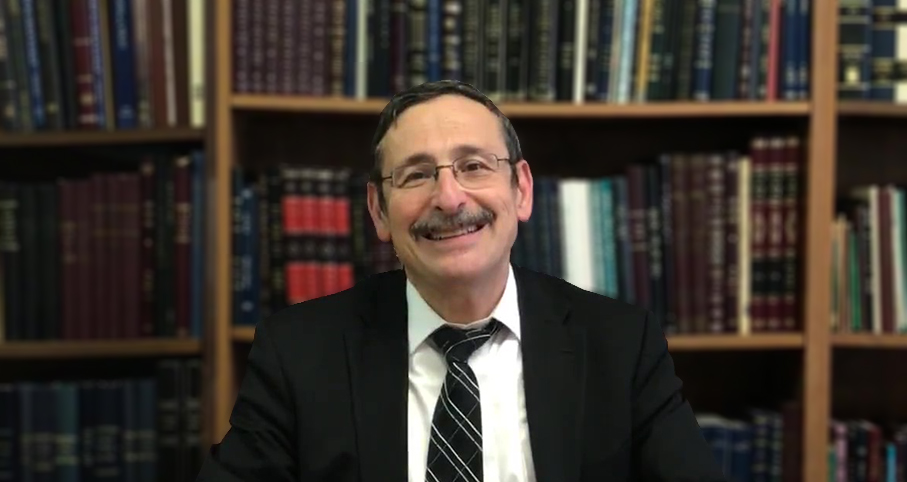- Sections
- Bemare Habazak - Rabbis Questions
311
Answer: (For those who can hear from a distance, not being in shul is not a problem; if they miss a few words, they can make them up.) Almost all poskim agree that one cannot fulfill the mitzva of hearing shofar via microphone, telephone or radio (besides chillul Yom Tov issues), because one must hear the authentic sound of a shofar (Rosh Hashana 27b). The ruling regarding a live megilla reading via microphone is less clear. Although one does not hear the actual voice of a valid ba’al koreh, but a device-generated reproduction, it is better than a recording in two ways. First, the sound waves that the the ba’al koreh produces directly cause the almost identical sounds heard. Secondly, the reproduction is heard at essentially the same time and place the ba’al koreh reads. Therefore, while most poskim posit one cannot fulfill the mitzva via microphone (see Yechaveh Da’at III:54; Minchat Shlomo I:9), the lenient position is marginally tenable (see Tzitz Eliezer VIII:11; Igrot Moshe, Orach Chayim II:108).
The gemara (Sukka 51b) seems to not require hearing the voice of the person reciting, if one knows what is being said. It tells of a huge amphitheater in Alexandria, where flags were waved to inform people when to answer amen. However, this source is not sufficient here, because Tosafot (ad loc.) explains that the participants did not attempt to fulfill any mitzva but just wanted to answer amen.
Rav SZ Auerbach (Minchat Shlomo ibid.) does not allow even answering amen regarding via radio and telephone. He argues that the people in Alexandria were close enough to be connected to the berachot without hearing them. However, there is no physical connection between the person reciting and the one "listening" remotely via telecommunication. For him, one could certainly not fulfill a mitzva this way. Nevertheless, there were serious poskim who allowed, in a case of necessity, to fulfill mitzvot such as megilla and havdala via telephone (Minchat Elazar II:72, Igrot Moshe, OC IV:91). Adding in video will not improve things halachically, and all agree that one cannot fulfill a mitzva by or even answer amen to recorded events because of the total break from the human performance of the mitzva.
If one is unable to hear the megilla normally, it is worthwhile to hear it electronically. This is not only due to the lenient opinions. Exposure to Megillat Esther’s content has value (Mishna Berura 692:27), like reading the parasha from a chumash when one cannot go to shul (ibid. 143:9), and it enables one to remember Hashem’s kindness (Aruch Hashulchan, OC 691:14). In present difficult times, in many communities, the feeling of comradery is also important, especially on a holiday as communal as Purim. Hopefully, people will not incorrectly learn from this, that if away or infirmed for Purim, they do not need to make an effort to fulfill the mitzva properly.
The halachically simple way to fulfill the mitzva is for the people to read it themselves from a kosher klaf they own or can borrow. (One who lains without a minyan does not make the beracha of Harav Et Riveinu at the end of the Megilla – Rama, OC 692:1). A non-proficient ba’al korei will need help, not only because of difficult trop, which is not crucial, but because of hard words and kri u’k’tivs. One who is precise in his reading can help the makeshift reader and correct as needed. It is possible to read along with a live or recorded reading. This is not very practical, especially if reading for others, as they need to hear the person rather than the electronic sound. One can use a recording and start and stop it as necessary. For those who prefer, I have made a (1 hour 8 minutes) video of the laining with pauses every few words, so that one can read along at a comfortable pace. It is available upon request at: info@eretzhemdah.org.

Ask the Rabbi: Taking a Different Object than Lost
Rabbi Daniel Mann | Adar 5785

Ask the Rabbi: “Cooked” and Sweetened Wine for Kiddush
Rabbi Daniel Mann | Tevet 5785

Siyum for Taanit Bechorot Via Live Streaming
Rabbi Daniel Mann | Adar 29 5780

Ask the Rabbi: Indirect Responsibility for Theft
Rabbi Daniel Mann | Shevat 5785

The spirituality of listening
Rabbi Jonathan Sacks | Av 21 5776

What Is the Significance of the Number 40 in Jewish Tradition?
Rabbi Stewart Weiss | Tevet 4 5782

Aaron, Moses, and the High Priesthood
Parashat Shmini
Rabbi Avraham Yitzchak HaLevi Kilav

Making Our Days Count
A Review of the Halachos of Sefiras HaOmer
Rabbi Yirmiyohu Kaganoff

CLEANING FOR PESACH: BETWEEN 'FEELING' & 'BEING' RELIGIOUS
Rabbi Ari Shvat | Nisan 5785
Daf Yomi Makkot Daf 9
R' Eli Stefansky | 19 Nisan 5785
Daf Yomi Makkot Daf 11
R' Eli Stefansky | 21 Nisan 5785









